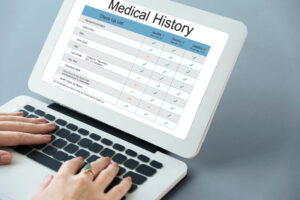
Outsourcing medical record reviews, summaries, and demand letters can be a strategic decision for healthcare providers and legal professionals. It streamlines operations, reduces costs, and provides access to specialized expertise. However, with the increasing reliance on third-party services, concerns about the safety and security of sensitive medical information naturally arise.
In this blog, we will explore the security aspects of outsourcing medical records, delve into the key safeguards, and discuss how you can ensure that your medical records remain safe and secure during the outsourcing process.
The Importance of Medical Records
Medical records are critical documents that contain a patient’s comprehensive medical history, including diagnoses, treatments, medications, and interactions with healthcare providers. These records are essential for providing effective, coordinated care and are also used in legal contexts, such as personal injury cases, to support claims and demand letters.
Given the sensitive nature of this information, maintaining the confidentiality and security of medical records is paramount. A breach of this data could lead to significant legal and financial repercussions, not to mention the potential harm to patient privacy and trust.
Why Medical Record Review is Necessary?
Medical record reviews are crucial for ensuring the accuracy and completeness of patient information. These reviews help healthcare providers avoid medical errors, support proper billing and claims processing, and ensure compliance with healthcare regulations like HIPAA (Health Insurance Portability and Accountability Act).
Outsourcing these reviews to specialized providers can bring efficiency and accuracy, but it also requires careful consideration of data security measures to protect sensitive patient information.
Key Security Concerns When Outsourcing Medical Records
When outsourcing medical records for tasks like medical summaries and demand letters, several security concerns may arise:
- Data Breaches: Unauthorized access to medical records can lead to data breaches, exposing sensitive patient information.
- Compliance Risks: If the outsourcing provider does not adhere to regulatory standards like HIPAA, it could result in legal penalties and reputational damage.
- Lack of Control: Outsourcing may create a sense of losing control over the data, leading to concerns about how and where the information is stored and handled.
- Inconsistent Security Practices: Different providers may have varying levels of security, creating potential vulnerabilities in data protection.
Ensuring the Security of Your Medical Records
While these concerns are valid, several measures can be taken to ensure the safety and security of your medical records when outsourcing. Here are some key strategies:
- Choose a Reputable Provider: The first step in ensuring the security of your medical records is to choose a reputable and experienced outsourcing provider. Look for providers with a proven track record of handling sensitive information securely. Review their credentials, client testimonials, and case studies to assess their commitment to data security.
- Data Encryption: Ensure that the outsourcing provider uses advanced encryption protocols to protect your data both during transmission and while it is stored on their servers. Encryption ensures that even if data is intercepted or accessed by unauthorized parties, it remains unreadable and secure.
- HIPPA Compliance: If you’re dealing with U.S.-based records or clients, the provider must comply with HIPAA regulations. HIPAA sets stringent standards for the security and privacy of medical records. Make sure your provider has a deep understanding of these regulations and implements them rigorously in their processes.
- Confidentiality Agreements: Ensure that all personnel involved in handling medical records sign non-disclosure agreements (NDAs) and confidentiality agreements. This legally binds them to protect the information and ensures that only authorized personnel have access to the data.
- Data Backup and Recovery: Your provider should have robust data backup and disaster recovery plans in place. Regular backups ensure that your data is safe in case of system failures or cyberattacks. A well-defined disaster recovery plan ensures that data can be quickly restored, minimizing disruption to your operations.
- Transparent Communication: Ensure that the outsourcing provider maintains transparent communication about their security practices. They should be willing to share details of their security protocols and provide updates on any improvements or changes. Clear communication builds trust and ensures that you are always informed about how your data is being protected.
Outsourcing medical records for summary and demand letter preparation can be a secure and efficient process if done with the right provider. By choosing a reputable outsourcing partner and ensuring that they implement robust security measures, you can protect your sensitive medical information while benefiting from the efficiencies and expertise that outsourcing offers. In a world where data security is increasingly important, it’s crucial to partner with a provider who prioritizes the safety of your medical records. By taking the necessary precautions, you can confidently outsource your medical records, knowing that they are in safe hands. If you’re considering outsourcing your medical record reviews, reach out to a trusted provider who can offer secure, compliant, and reliable services tailored to your needs.
